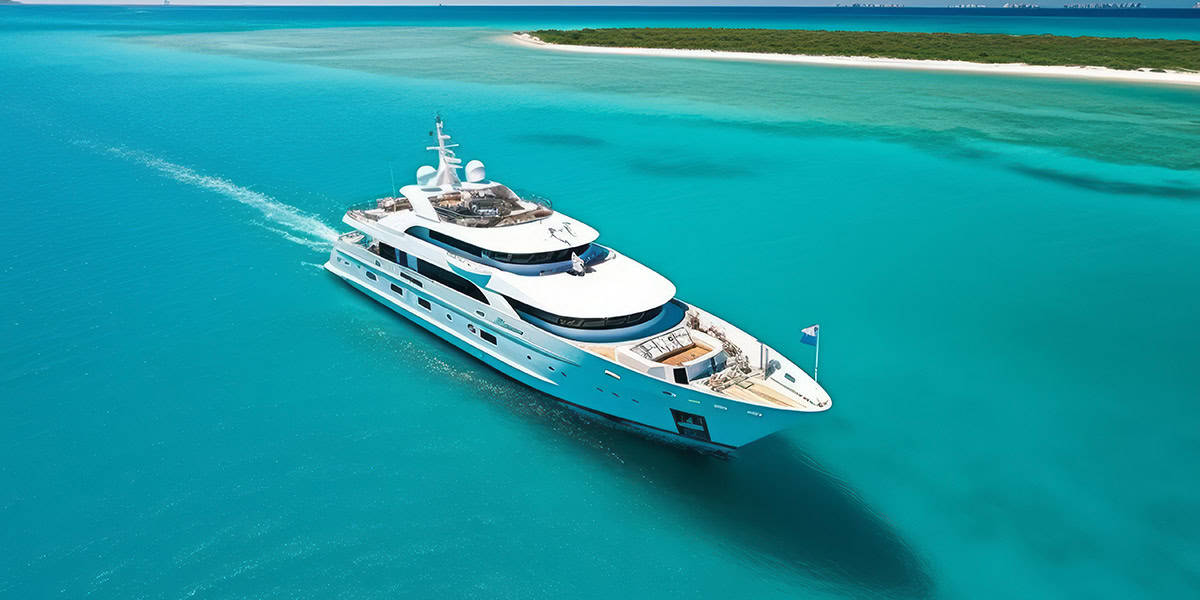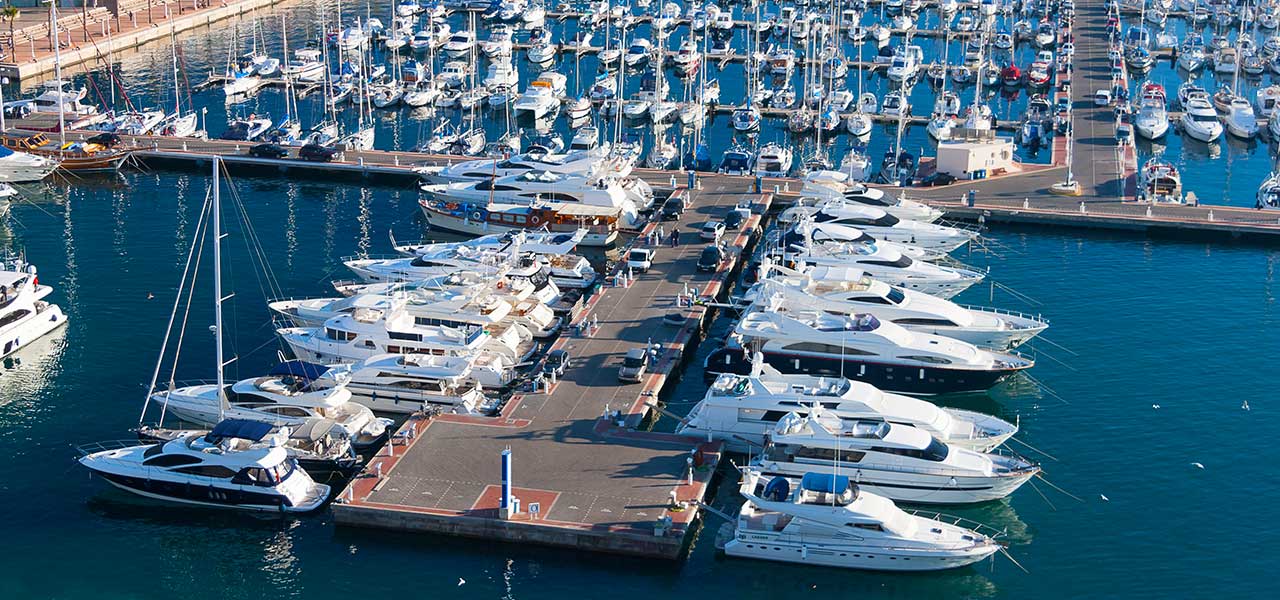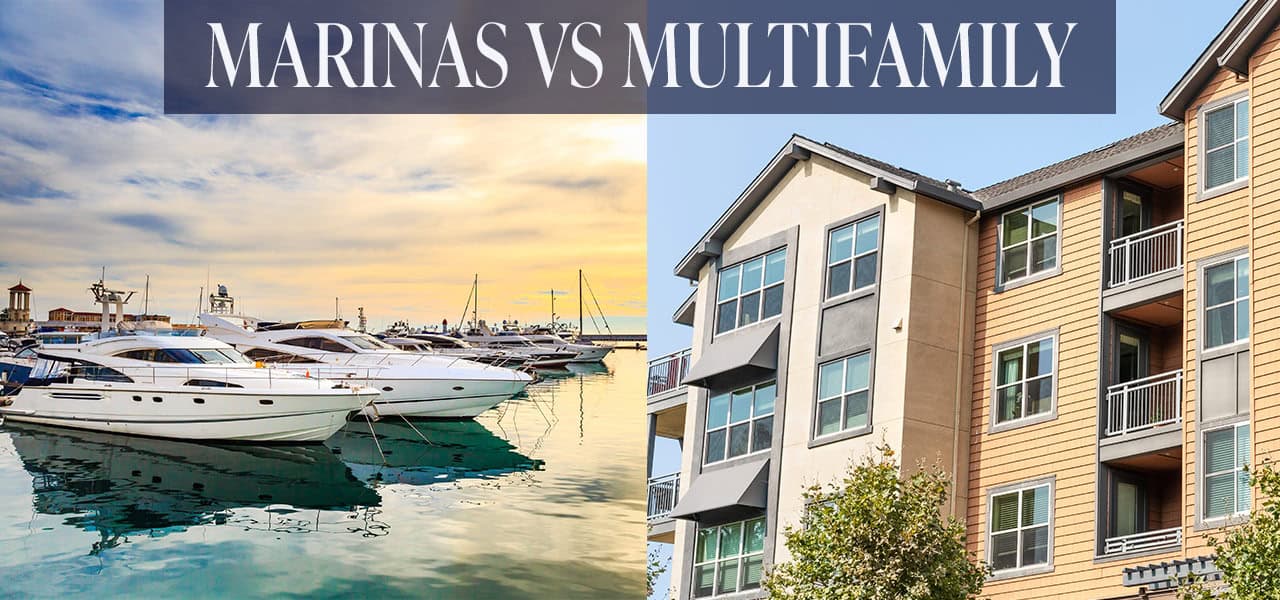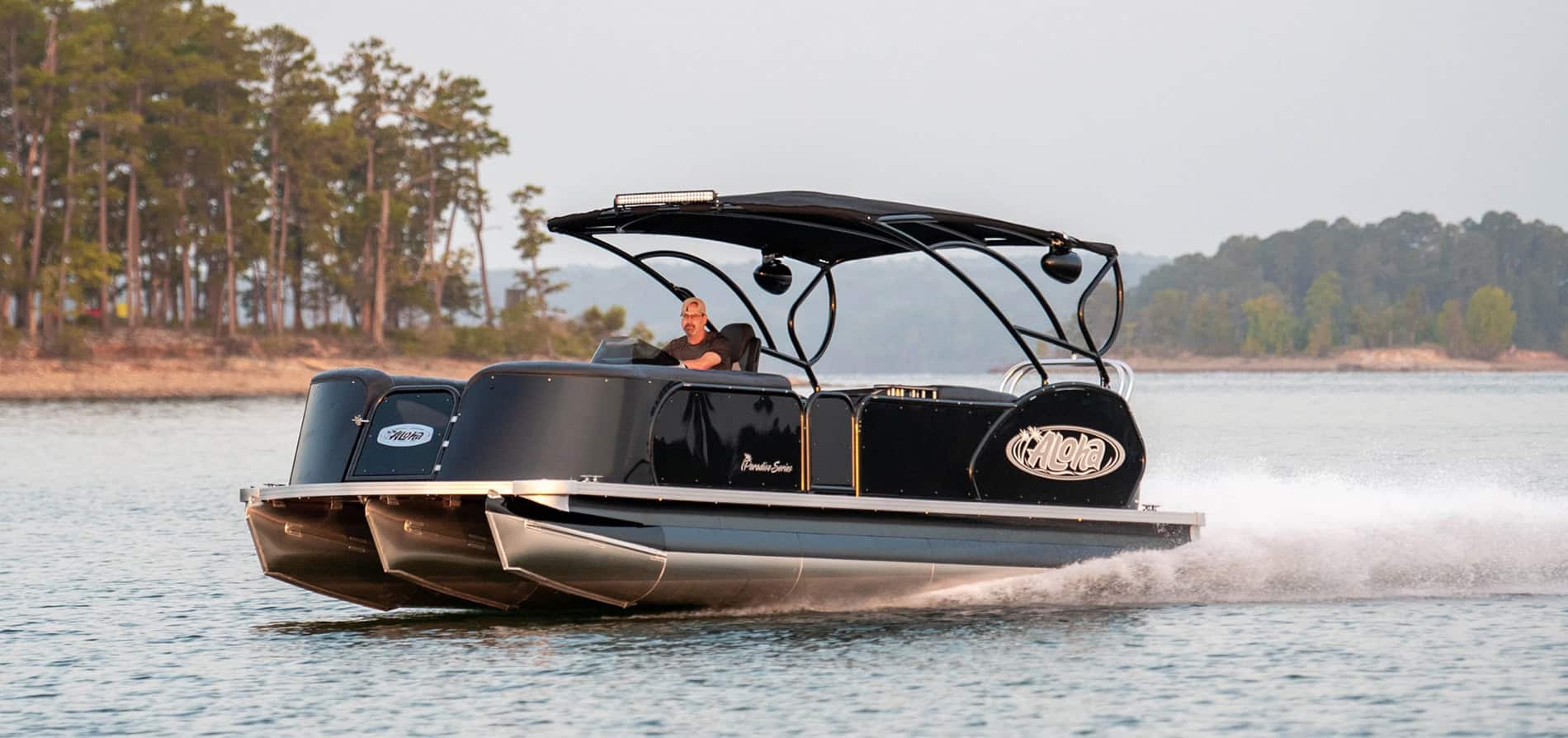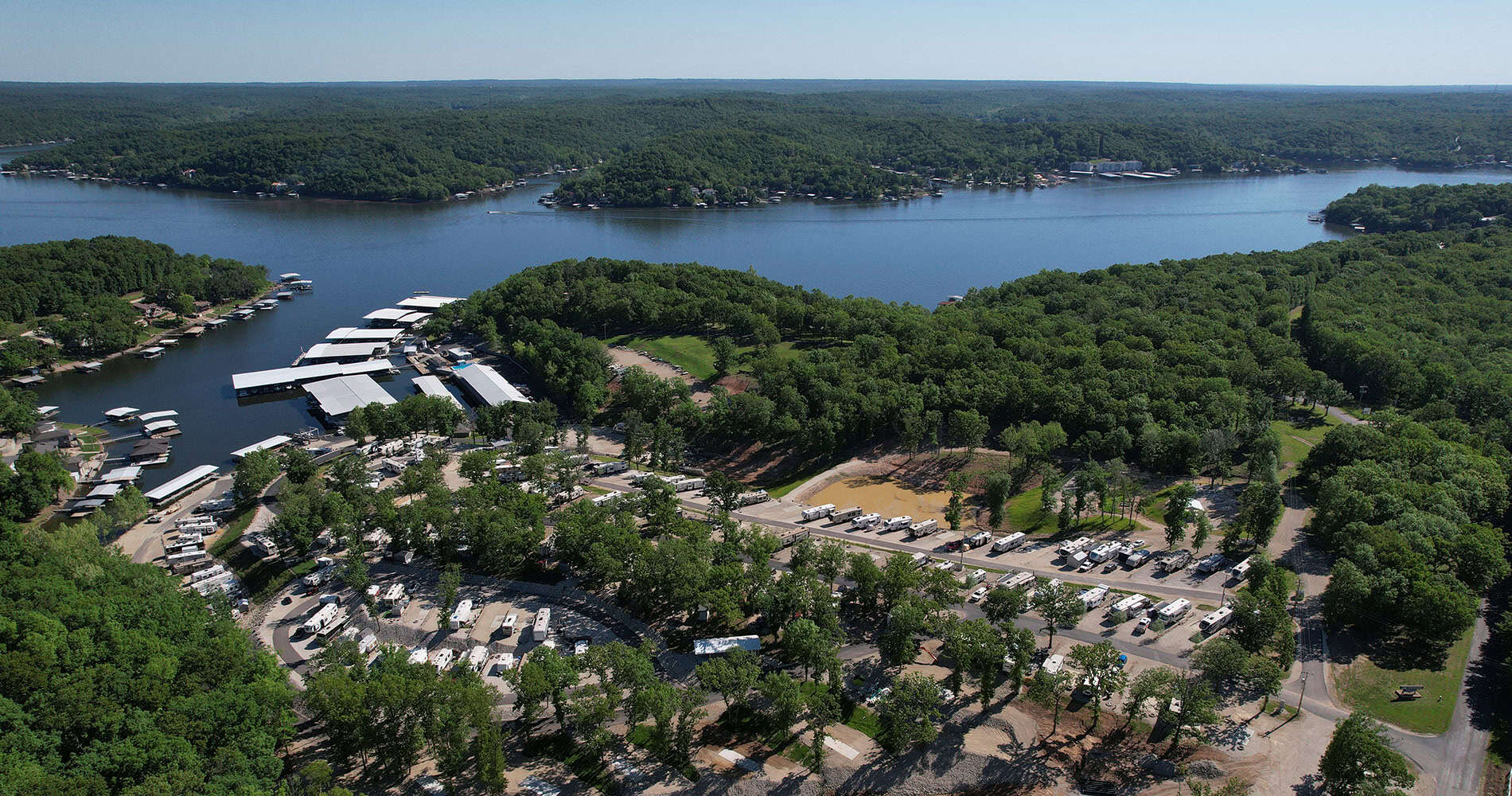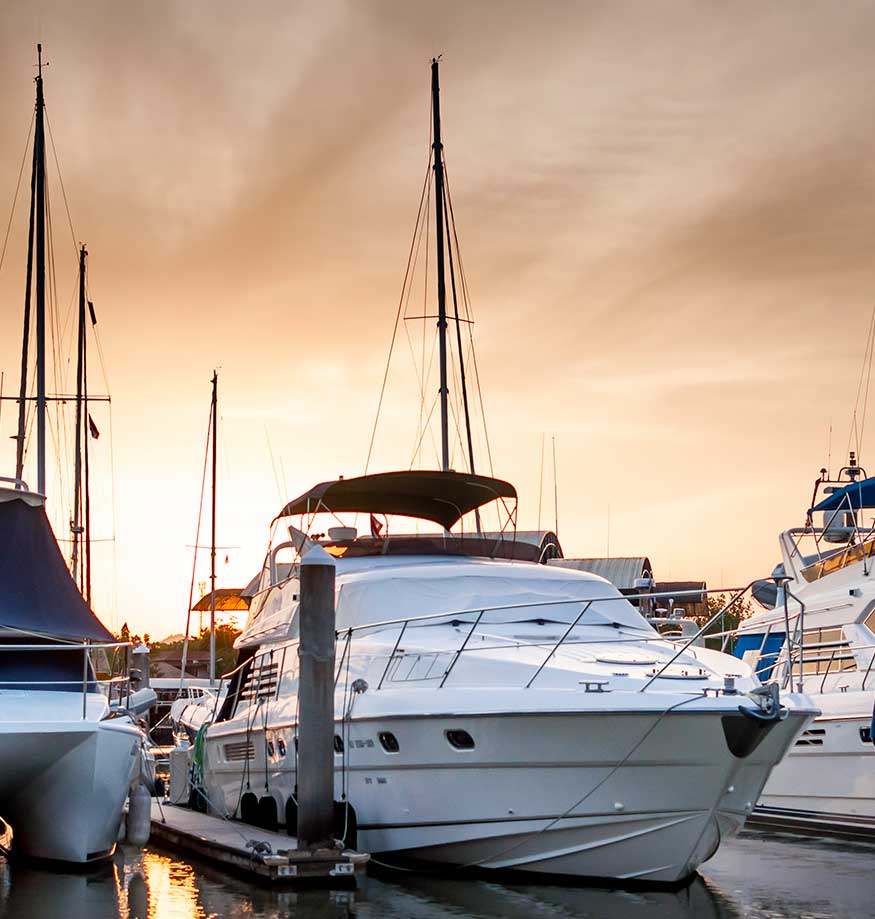10 Reasons Why Marinas Are Great Alternative Investments
Investing in alternative investments such as hotels, senior housing, and self-storage facilities has long been a strategic play by seasoned investors*, but the up-and-coming play now is marina investments. In the hands of experienced operators, marinas offer higher returns in the face of high inflation and a slowing economy, when compared to traditional real estate investments.
In this article, we are going to address the top ten reasons why marinas are great alternative investments to your add to your portfolio.
1) Steady Income Stream
For a long time marinas have been compared to storage facilities with marinas being viewed as storage for boats, but now marinas operate really in a class of their own – they are a collective of businesses. Due to the fact that a marina is not only a real estate play but also involves ownership of several businesses, such as restaurants, rentals, events, and membership programs – to name a few – a successful marina is a reliable source of year-round income for investors*. Unlike other real estate investments which have seasonal highs and lows, marinas have the ability to generate a stable income to owners throughout the year.
2) Recession Resistant
The boating industry has a long history of strong resilience during past economic downturns for several reasons.
Marinas provide an essential service and an emotional hitch. Boat owners need a secure place to park and maintain their vessels, and long-term lease agreements keep boat owners in their slip. These lease agreements can span several years, and boat owners committed to long-term leases are less likely to leave. Beyond the mooring, owners have emotional ties to the marina because it is a place where they meet up with family and friends, and the community connection keeps them in place.
Recreational spending is up in the US despite economic downturns and recent recessions. “Total recreation expenditures (includes air, hotel, restaurant, cruising and boating, etc.) in the United States saw a steady increase between 1980 and 2000. Having experienced a dip in 2020 as a result of the coronavirus (COVID-19) pandemic, spending has since recovered beyond pre-pandemic figures. In 2023, total recreation expenditure was forecast to hit 552.8 billion U.S. dollars. 1
The interest in outdoor recreation is creating a growing industry becoming a large contributor to the US economy. Outdoor recreation accounts for 1.9 percent of U.S. GDP, generating $862 billion in gross economic output, of which recreational boating and fishing is the single largest segment with an attributed $50.4 billion, supporting 4.5 million American jobs. (Source: U.S. Department of Commerce, Bureau of Economic Analysis)
3) Strong Market Drivers
The rise in disposable income and annual household incomes over $100,000 is becoming a growing market driver. This demographic tends to own larger boats or yachts, which generate more significant slip fee revenue and require premium services offered by up-and-coming marinas. As large boat owners, they have fewer options for storing their boats, pushing them to use marinas rather than storing their boats themselves.
The evolution of the boating industry has become a driving force of the strength of marinas as an investment opportunity. Boating was once viewed as a hobby for the mechanically minded. Today it’s a leisure activity for the masses. Due to improved technology, today’s boats are bigger and better engineered, and engines are more powerful and fuel-efficient than ever before. Boaters no longer need to be a mechanic to maintain their boat, and today’s marinas offer services that make boat ownership easy and maintenance-free. The improved accessibility of today’s boats has created a larger market of boaters who require the services of a marina.
4) Competitive Cap Rates
The cap rates for marinas have remained high over the past decade whereas rates for other investment properties have shrunk.
Depending on the marina property itself, initial cap rates range between 11.5 to 12.5 percent range, and internal rates of return, based on a five-year hold, might reach 15 or 20 percent, which is 10 to 15 percent higher than the average quality commercial investment today. 2
These higher returns reflect the fact we discussed above that marinas are not just a real estate investment but are also a business collective.
5) Scarcity of Marinas
To begin with, we have a limited supply of marinas in the US. Add to that the complexities and challenges of building new marinas. The result is the national marina slip count has not kept up with the accelerated growth in boat ownership.
The scarcity of marinas gives marina owners pricing power and increases the odds of keeping their slip occupancy high. With a stable and growing stock of boats and a limited supply of facilities in which to store them, the fundamentals of the industry suggest marinas should be a compelling investment vehicle for years to come.
6) Prime Real Estate Value
Marinas are often situated in prime waterfront locations, which can appreciate significantly in value over time. The underlying real estate can be a valuable asset that continues to appreciate independently of the marina’s operations.
7) Asset Diversification
Investing in marinas is a great opportunity to diversify your investment portfolio. It is an asset class that is not directly correlated with traditional stocks and bonds, potentially providing a hedge against market volatility. Partnering with a seasoned company like New Haven Marinas, with a track record of success, is a way an investor* can participate in this great alternative investment class.
8) Barriers to Entry
In today’s economy, developing a marina is time consuming and expensive, due to the need for permits, regulatory compliance, and substantial upfront capital. This can create barriers to entry for potential competitors, helping existing marinas maintain their market position and pricing power.
9) Adaptability
The beauty of marina ownership is the collective of businesses discussed above. As new trends come on the scene, marina owners can adapt to changing market conditions and customer preferences. They may offer promotions, introduce new services, or implement cost-saving measures to maintain profitability. The fact that a marina is not just one business, allows owners the flexibility to add a new business on the property to seize an opportunity.
10) Tax Benefits
Owning a marina offers investors many potential tax benefits. Local, regional, and state governments offer marina owners substantial tax benefits and incentives, such as depreciation deductions or credits for promoting tourism and water-based activities. Our Marina investors* are loving the accelerated depreciation they have realized from our investments.
Marina Investing
See if Marina Investing is right for you. New Haven Marinas currently has an investment offering for verified accredited investors to potentially earn both current income and long-term capital gains. Reach out to us by filling out our Contact Form.
_______________________________________________________________________________
*ALL INVESTMENT OPPORTUNITIES ARE FOR VERIFIED ACCREDITED INVESTORS ONLY PER RULE 506(c) OF REGULATION D OF THE SECURITIES ACT OF 1933, AS AMENDED.
1) Recreation expenditure in the U.S. 1980-2023. Published by Christina Gough, Jun 21, 2023
2) For Sail: Navigate the Specialty Niche of Marina Appraisals and Resales.
By Barbara Bronstien Stevenson

